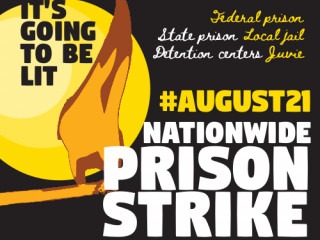 Since I saw the trailer months ago, I’ve been eager to see the movie Sing Sing. “Divine G (Colman Domingo), imprisoned at Sing Sing for a crime he didn’t commit, finds purpose by acting in a theatre group alongside other incarcerated men in this story of resilience, humanity, and the transformative power of art.” My wife and I attended a Monday night showing at the Spectrum Theatre in Albany.
Since I saw the trailer months ago, I’ve been eager to see the movie Sing Sing. “Divine G (Colman Domingo), imprisoned at Sing Sing for a crime he didn’t commit, finds purpose by acting in a theatre group alongside other incarcerated men in this story of resilience, humanity, and the transformative power of art.” My wife and I attended a Monday night showing at the Spectrum Theatre in Albany.
From RogerEbert.com: “Writer-director Greg Kwedar and his script partner Clint Bentley developed the project after buying the rights to the 2005 Esquire article ‘The Sing Sing Follies,’ by John H. Richardson. But they didn’t just shrink-wrap a true story in Hollywood cliches. They did what good journalists would do and re-reported the entire thing by interviewing people from the story as well as various participants in the Sing Sing correctional facility’s theater program.”
Acting!
One interview of the directors of Ghostlight [a movie I highly recommend] and Sing Sing on their cinematic explorations of empathy via theater notes: “{Sing Sing] revolves around an original production called Breaking the Mummy’s Code, most closely following founding member John ‘Divine G’ Whitfield (Domingo) as he prepares for an upcoming clemency hearing. Divine G soon finds himself challenged, then befriended by newbie Clarence ‘Divine Eye’ Maclin (as himself), a lone wolf selling drugs who can intimidate someone in the yard one minute, then casually quote King Lear the next.” Mummy’s Code, BTW, is a wildly fascinating production, evoking, among others, Robin Hood, Freddy Krueger, Hamlet, and a Roman citizen.
The movie had the opportunity to be a canned feel-good story, but it didn’t because of the persona of the Domingo character and verisimilitude of the theater director (Paul Raci from Sound Of Metal); Divine Eye (Maclin), a newbie would-be actor in the play; and the other actors.
RTA
Hmm. Maclin’s IMDb includes Unlocked: The Power of the Arts in Prison, which “captures the unsparingly honest stories of formerly incarcerated men and women who participated in RTA’s prison arts program. The film offers a different model for criminal justice, emphasizing life skills that lead to success after prison.”
What is RTA? Rehabilitation Through the Arts. “RTA helps people in prison develop critical life skills through the arts, modeling an approach to the justice system based on human dignity rather than punishment.” Oh and here’s the Unlocked short film, which features Maclin and others I recognized from the movie Sing Sing!
“Founded at Sing Sing Correctional Facility in 1996, RTA has provided arts-based workshops to thousands of incarcerated men and women, transforming lives and breaking the cycle of incarceration with proven results: less than 3% of RTA members return to prison, compared to 60% nationally. To learn more about our work, ask questions, or provide support, please contact us.”
The fact that this is based on a true story – clips from the original Breaking the Mummy’s Code shows up in the end credits – makes this even more compelling.
Rotten Tomatoes gives it a 98% positive rating with critics, 93% with audiences. One of the three negative critics’ takes misses the point completely: “The story itself presents a flawed notion of ‘serving time’ and becoming ‘reformed’ as a result of incarceration without unpacking the institutional violence that lands Black men behind bars at a disproportionate rate.” It’s just not THAT movie. The one that it is suffices.

 My sister Leslie and I attended the service at Trinity AME Zion Church in Binghamton, NY, on October 9. During the announcements, it was noted that “if you are convicted of a felony and released from prison, you can vote. If you are convicted of a felony, and your sentence is suspended, you can vote. Visit the New York State
My sister Leslie and I attended the service at Trinity AME Zion Church in Binghamton, NY, on October 9. During the announcements, it was noted that “if you are convicted of a felony and released from prison, you can vote. If you are convicted of a felony, and your sentence is suspended, you can vote. Visit the New York State  If “Attica” is just a line you recognize from the movie
If “Attica” is just a line you recognize from the movie  Hmm. The idea of allowing people in prison to vote had never really crossed my mind before recent events.
Hmm. The idea of allowing people in prison to vote had never really crossed my mind before recent events.